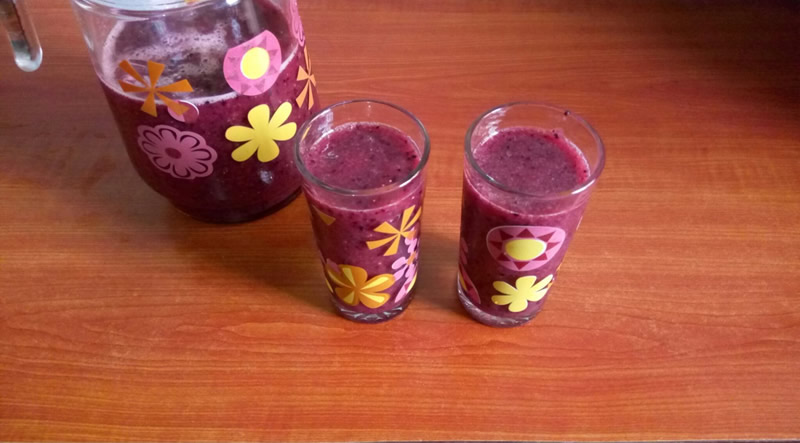Few things compare to the sweetness of fresh-picked strawberries or the luscious first bite of an apple that leaves you craving for more. That’s how delicious fruits can be.
Fruits are not only delicious but healthful too. Rich in vitamins A and C, plus folate and other essential nutrients, they may help prevent heart disease and stroke, control blood pressure and cholesterol, prevent some types of cancer and guard against vision loss. They’re so good for you that most women are recommended to get seven or eight servings of fruit and vegetables each day.
If it’s the vitamins that promote good health, you may wonder if you can just pop supplements. Nope.
Sun-drenched and vine-ripened fruits contain more than just vitamins; they’re a complex combination of fibre, minerals, antioxidants and phyto-chemicals (with vitamins) that work in combination to provide protective benefits. You can’t get all that from a pill!
All fruits offer health benefits, but these three stand out as favorites in nutrient-dense powerhouses with the most disease-fighting potential:
Apples
• Nutritional value (1 medium): 75 calories, 3 g fibre
• Disease-fighting factor: Apples contain antioxidants called flavonoids, which may help lower the chance of developing diabetes and asthma. Apples are also a natural mouth freshener and clean your teeth with each crunchy bite.
Did you know? An apple’s flavor and aroma comes from fragrance cells in apple skin. So for maximum flavor, don’t peel your apple. Plus, the vitamins lie just beneath the skin.
Blueberries
• Nutritional value (1/2 cup/125 mL): 41 calories, 1.5 g fibre, rich in antioxidants
• Disease-fighting factor: Blueberries rank No. 1 in antioxidant activity when compared to 60 other fresh fruits and vegetables. Blueberries may help to prevent prostate cancer and also, lower the risk of developing age-related diseases such as Parkinson’s and Alzheimer’s.
Did you know? Blueberries freeze very well! Here’s how: Rinse, then let the berries dry in a single layer on towels. Freeze in a single layer on rimmed baking sheets. Seal in freezer-safe containers for up to one year. Use them straight from the freezer in your morning cereal, blend them into a smoothie or mix into pancake or muffin batter. (You can also buy frozen blueberries year-round.)
Strawberries
• Nutritional value (1/2 cup/125 mL): 23 calories, 1.5 g fibre, source of vitamin C
• Disease-fighting factor: Strawberries are rich in several antioxidants that have anti-inflammatory properties, including helping to prevent atherosclerosis (hardened arteries) and to suppress the progression of cancerous tumours including breast, colon and leukemia. Research has also found that strawberries help decrease inflammation and control type 2 diabetes.
Did you know? The flavour and colour of strawberries is enhanced by balsamic vinegar. For a fabulous dessert, drizzle balsamic vinegar over ripe strawberries and serve with vanilla ice cream.
Frozen fruit – Not only is frozen fruit convenient, but it’s also equally nutritious ( if not more so) than its fresh counterpart. Fresh fruit starts to lose nutrients as soon as it’s picked. The time between harvest and consumption can be long enough for significant nutrient losses to occur. Frozen fruit, however, is picked and frozen immediately, retaining much of the nutrient value. Plus, since frozen fruit is already washed, peeled and cut, it’s a breeze to use. It can be thawed at room temperature or defrosted in the microwave.
Once defrosted, eat it as you would fresh fruit, or use it atop cereal, mixed in yogurt or you blend into smoothies just like I did!







